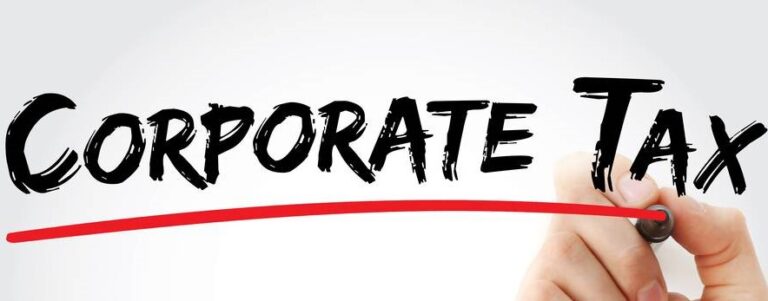Running a business in the UAE? You’re probably hearing more about CT – Corporate Tax lately. And with good reason. The UAE introduced corporate tax to regulate business profits—and ignoring it can cost you both money and credibility.
But the good news? With the right systems and knowledge, managing CT – Corporate Tax doesn’t have to be complicated.
In this blog, we’ll clearly explain what corporate tax is, why it matters, how it works in the UAE, and which tools can help your business stay compliant. Whether you’re a small business or a large enterprise, understanding CT – Corporate Tax can protect your profits and build your credibility.
Let’s break it down, clearly and simply.
What Is CT – Corporate Tax in the UAE?
CT – Corporate Tax is a federal tax imposed on business profits in the UAE. It officially came into effect on 1 June 2023, with a standard rate of 9% applied to taxable profits above AED 375,000.
This tax is not on revenue or sales. It’s strictly on net profits after allowable expenses. So, if your business earns less than AED 375,000 in annual profit, you won’t pay anything.
The main aim of CT – Corporate Tax is to:
- Align the UAE with global tax standards
- Prevent profit shifting and tax evasion
- Diversify government income beyond oil
Important: Free zone businesses may still enjoy tax benefits under specific conditions but must still register and file returns.
Key Features of CT – Corporate Tax
Understanding the structure of CT – Corporate Tax helps you stay compliant. Here are the most important features:
Tax Rate
- 0%: For taxable profits up to AED 375,000
- 9%: For taxable profits exceeding AED 375,000
- Different rates: May apply to large multinational companies under OECD Pillar Two
Scope of Application
- Applies to all UAE-based businesses (Mainland and Free Zones)
- Freelancers and sole proprietors may also be liable if annual income exceeds the threshold
- Does not apply to salary earners or personal income from investments
Mandatory Registration
- Every business must register for corporate tax, even if its income is below the threshold
- Registration is done through the EmaraTax portal (UAE Federal Tax Authority)
Filing Frequency
- Annually
- Must be submitted within 9 months after the end of the financial year
Deductible Expenses
- Costs that are wholly and exclusively related to business operations
- Examples: salaries, rent, office supplies, utility bills
Business Benefits of Understanding CT – Corporate Tax
Adopting a proactive approach to CT – Corporate Tax offers several business advantages:
Legal Compliance
Complying with CT rules protects you from:
- Penalties (which may go up to AED 10,000 for late registration)
- Legal risks
- Tax audits
Better Financial Planning
Knowing your taxable income helps:
- Forecast cash flow
- Plan for tax liabilities
- Set more accurate budgets
Increased Transparency
A proper corporate tax system increases your business’s:
- Credibility with stakeholders
- Trustworthiness for future investors
- Alignment with international financial norms
Encouragement for Small Businesses
The 0% threshold for profits under AED 375,000 protects small businesses from financial strain while encouraging:
- Growth
- Sustainability
- Proper documentation
Common Misconceptions About CT – Corporate Tax
Many business owners confuse CT – Corporate Tax with other taxes. Let’s clear up a few common misunderstandings:
| Misconception | Reality |
| CT is charged on revenue | CT is only on net profit |
| Free zone companies are exempt | Only qualified entities are eligible for exemption |
| CT must be paid monthly | CT is filed annually |
| CT applies to salaried individuals | Salaries are not subject to CT |
| VAT and CT are the same | VAT is a consumption tax, CT is a profit tax |
Best Systems for Managing CT – Corporate Tax
Managing tax manually can be risky and time-consuming. Fortunately, various systems can streamline CT – Corporate Tax processes in your business.
1. Zoho Books (UAE Edition)
- UAE-specific tax settings
- Auto-calculate tax
- Real-time financial tracking
- Integrated with UAE’s FTA portal
2. TallyPrime
- Localized for UAE’s tax regulations
- Simplifies return filing
- Helps with financial forecasting
- Multi-user accessibility
3. QuickBooks Online
- Suitable for SMEs
- Tracks income, expenses, and tax obligations
- Custom tax categories for UAE CT
4. Sage Accounting
- Cloud-based tax and finance management
- Suitable for enterprises
- Generates CT reports with a few clicks
5. Xero (UAE Integration)
- Easy interface for non-accountants
- CT-specific reporting tools
- Bank integration and real-time insights
Tip: Choose a tool that fits your business size and complexity. Automation reduces errors and saves time.
What Should You Do Now?
If you operate in the UAE, you should take these steps today:
- Check your profit level
- Are you above or below AED 375,000?
- Are you above or below AED 375,000?
- Register with the FTA
- Don’t wait until you’re penalized.
- Don’t wait until you’re penalized.
- Choose an accounting system
- One that supports UAE-specific CT features.
- One that supports UAE-specific CT features.
- Start tracking your expenses
- You’ll need them for deductions.
- You’ll need them for deductions.
- Consult a professional
- Proper advice saves you money and prevents mistakes.
- Proper advice saves you money and prevents mistakes.
Final Thoughts: The UAE CT System Is Here to Stay
The introduction of CT – Corporate Tax marks a shift in how UAE businesses manage profit and compliance. It’s not just about paying tax—it’s about building a long-term, transparent business model.
By understanding the system, using the right tools, and acting early, you avoid unnecessary penalties and build stronger credibility.



